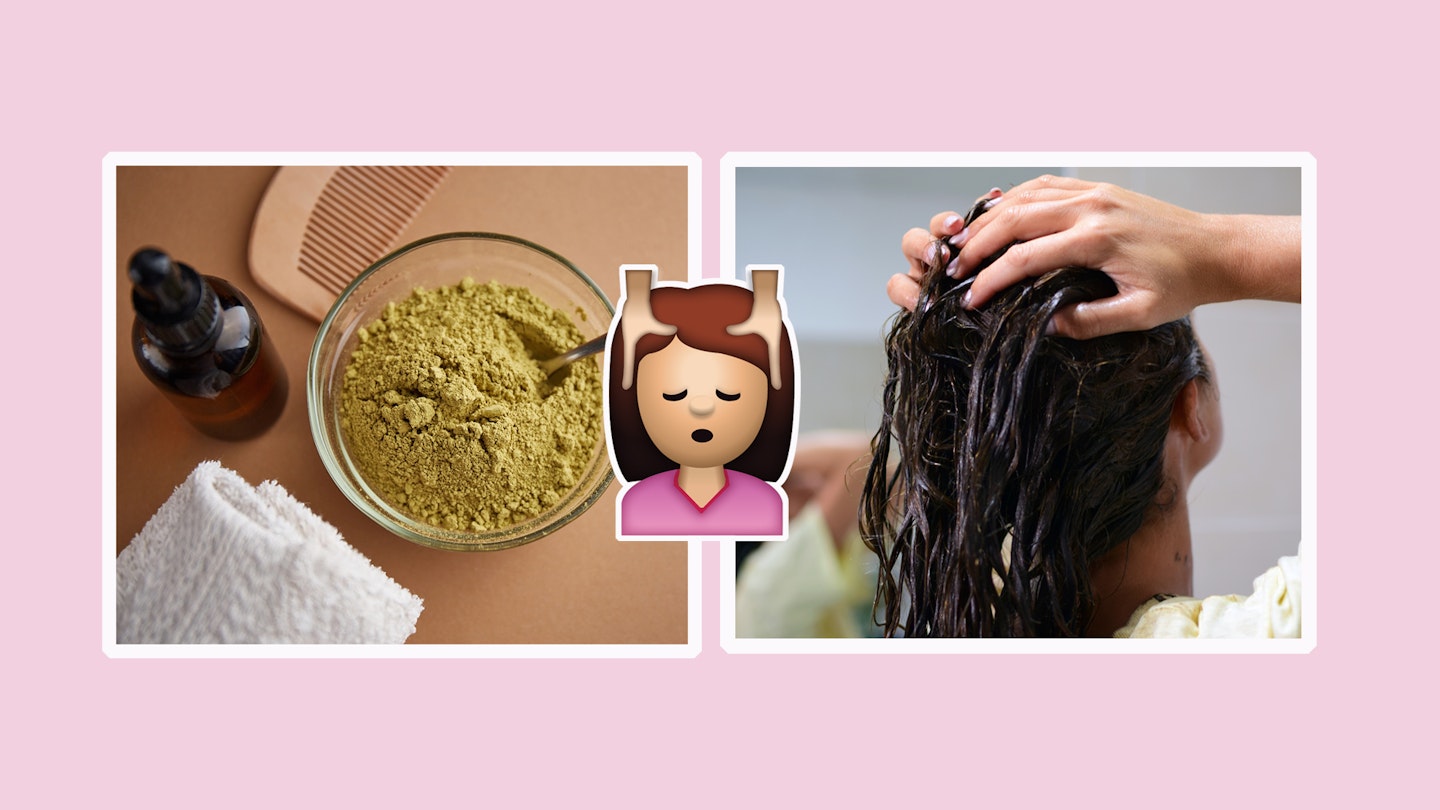Here at heat, we're always looking at ways we can try and let our hair live it's best life. Whether that's by reducing the amount of heat we use on our hair, getting trims every four weeks and finding the best masks to treat our over-styled and fragile hair (hello Olaplex and Garnier Hair Food).
Aside from all of that, we're also looking into the eco-friendly ways you can dye your hair, from henna to carrot juice.
Here's your low down on natural hair dye...
Can you dye your hair naturally?
You sure can. Despite many opting to choose to head to the salon to transform our locks with hair dye - whether that may be a root touch up, a gorgeous balayage, a bleach blonde moment or subtle highlights.
Hair dye is a complex subject, with many different ingredients and chemicals in every single one, but it's important to remember that ones that include bleach and ammonia can make your hair dry, brittle, frizzy-looking and prone to breakage. They're also full of chemicals, which need to be disposed of correctly and are not great for the environment. Exposure to high concentrations of ammonia in the air also causes immediate burning of the eyes, nose, throat and respiratory tract.
What is natural hair dye?
Natural hair dyes contain plant-based ingredients rather than harsher chemicals.
Look! More news!
What is in natural hair dye?
Natural hair dyes often feature ingredients such as henna, rhubarb root, and indigo powder as alternatives to chemicals.
Speaking of henna dye, Lush just launched a new Henna range for 100% natural hair colour without the damage of synthetic hair dyes.
The solid formula, available in various different shades (including Venitien or 'strawberry blonde', Rouge and Noir) are vegan, cruelty free, self preserving and wrapped in recycled paper packaging. Henna coats the cuticle in a protective, translucent layer that boosts body and gives the shiniest results imaginable. Lush even sell a sustainable dye brush, teaming up with Bambuu Brush to create a vegan tint brush.
 .
.www.lush.com
 .
.www.lush.com
Plus, Henna is both a treatment for the hair as well as a natural colourant, and loads of brands are jumping on board the chemical free hair dyes.
 .
.www.hollandandbarrett.com
 .
.www.hollandandbarrett.com
Can your natural hair colour change?
Hair colour we're born with is normally defined by our genes, but it can change over time, often getting darker as we get older. If you're blonde, you might find your hair lighten in the sunshine ☀️.
Is natural hair dye safe?
We would say so, yes. Some natural hair dyes will still contain chemicals, but far less than synthetic or chemical ones.

How do you make natural black hair dye at home?
It might sound scary, but there are some methods to changing the colour of your hair with some products you may already have in your house. If you want to avoid buying a henna hair dye, you could try carrot juice or beetroot juice, that gives hair a reddish tint or lemon juice that will lighten hair over time.
If you want to dye your hair darker, a cup of brewed coffee can work, and will even cover up grey hairs.
To dye your hair with coffee:
Brew a strong cup of dark-roast coffee.
Mix about 1/2 cup of coffee with 2 tbsp. of coffee grounds and 1 cup of leave-in hair conditioner.
Apply the mixture to clean, damp hair.
Let the mixture set for at least an hour, and wash it out when you’re done.
Repeat if necessary.
You can also use sage to darken your locks:
Steep between 1/2 and 1 cup of dried sage in a quart of boiling water for at least 30 minutes. (The longer you let it steep, the darker the tint could be.)
Let the water cool and strain out the sage.
After you wash and towel-dry your hair, pour the sage water over your hair for as long as possible.
Let the tint develop for at least 15 minutes before washing it out.
Does natural hair dye damage hair?
Even though henna is better for your hair, a 2019 study found that henna dyes can damage your hair, resulting in coarser, more brittle hair - especially when the henna dye was left on longer than an hour.
So if you choose henna, make sure you're not doing it all the time and try not to leave it on your hair for too long.
